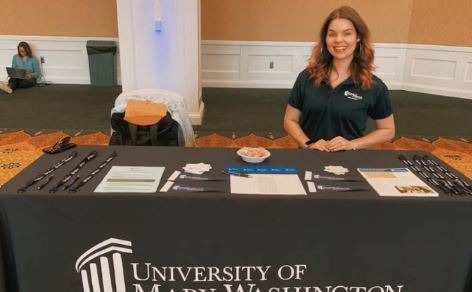College of Education to end five-year master’s program in favor of elementary education major and certifications
4 min read
The College of Education is making changes in response to the critical teacher shortage in Virginia and pressure from the state government. (College of Education | Facebook)
by EMILY SHUMAKER
Staff Writer
UMW’s College of Education will be eliminating their five-year master’s program and will transition to offering an elementary education major and a teaching certification through areas of discipline for grades preK-12.
The college made this decision in response to the critical teacher shortage in the state of Virginia. UMW accepted their last class into the five-year program this semester.
“There’s a critical teacher shortage really all across the country. I think it’s worse here in Virginia than in a number of states, in large part, because of the really good economy,” said Pete Kelly, the dean of the College of Education. “The state was pushing us to do it. They really felt like as a public university, we had an obligation to help solve that problem.”
According to Kelly, the number of students enrolling in education colleges across the country has been on the decline over the last ten years.
A Virginia law that passed in 2018 allowed teachers to teach with an undergraduate degree in education, where previously they were required to complete their master’s degree.
“I think the four-year program will definitely speed up the process of teachers coming out and being ready to start working. I think that it could be good to become a teacher more quickly because of the critical teacher shortage,” said Megan Carney, a junior geography major in the College of Education.
According to Kelly, “Part of the reason they did it was that some people believed part of the reason they had trouble attracting students to education was because they incurred a lot of debt in getting a master’s degree. If they could get that hurdle out of the way and allow teachers to get certified in four years rather than five, then that might help them attract students into the profession.”
In response to the change, universities are making the switch to offer four-year programs.
“Pretty much everybody has moved most of their programs over to these undergraduate programs. Some of them are going to be in a position to offer both because they are bigger, like [George] Mason and UVA [and] James Madison,” said Kelly.
While it was deemed necessary, it was not an easy decision for UMW’s College of Education.
“A lot of my faculty strongly believed in the five-year program. Colleges of education across the state were under some pressure from the state to really be a part of the solution and to help address the teacher shortage. We are a public institution, so as a public university, we have a public mission and that’s an important part of it. That’s why we set out to develop undergraduate programs,” said Kelly.
With this shift, UMW’s College of Education will offer the courses required for certification to students pursuing elementary and secondary education. They will also offer a degree in elementary education.
“We’ve proposed and have actually been approved just recently for our elementary major… an undergraduate major in elementary education,” said Kelly.
Because elementary teachers have to teach many subjects and there are many certifications, the college decided to build an elementary education major for students to complete everything in four years.
“It was a good opportunity for us to pop the hood on our curriculum and to take a look at our coursework and develop a sequence of learning experiences that make sense. We’ve got a bunch of field-based kinds of practicum experiences that we have also sequenced in a way that makes sense for our students. So we’re excited for that part. It’s good to have the opportunity to build a new curriculum. A lot of us worked really hard to build it,” said Kelly.
Kelly believes the changes will improve the way the college trains students to be teachers.
“I’m really excited. We’re developing some really great programs with our local schools. They depend on us to train great teachers. It’s really important that we can do things together,” said Kelly.
In addition to the changes within the program, members of the College of Education look forward to a change of location. While it currently has space in Trinkle Hall, in the future it will move to Seacobeck Hall following its renovation.
“We share it with math and religion departments and as far space goes, a new building would create space for all of the education [college], teachers and classes. They’ve been working on it for a long time, but I haven’t seen any success,” said Carney.
“Once we get our funding issues addressed, we’re going to be in a position to move in and have a new building and we’re really excited about that. It’s going to give us space to develop community and engage with our students and with each other,” said Kelly.











